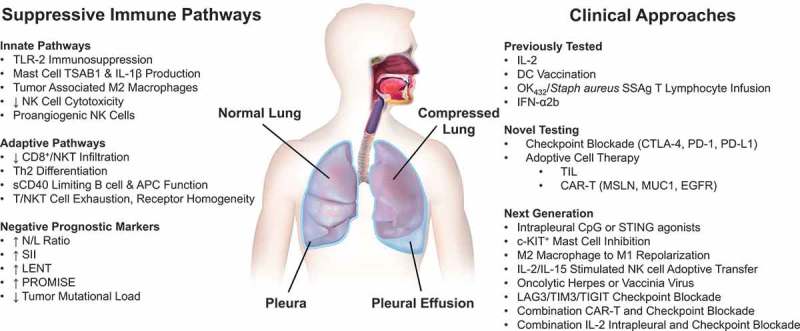Figure 1.

Immunotherapy for patients with malignant pleural effusions. Malignant pleural effusions are an inflammatory condition within the chest containing immunologically active but most often exhausted cells associated with both bulk tumor and tumor cells in suspension. Thus, they are a functionally ‘cold’ site. Several suppressive innate and adaptive pathways have been identified. MPE pathophysiology is closely correlated with the upregulation of these inflammatory pathways. Systemic measures associated with acute inflammation (neutrophils) and chronic inflammation – immunity (lymphocytes) can be utilized as prognostic indicators of disease outcome and for disease stratification. Previously tested clinical approaches, including IL-2 therapy and DC vaccination hold much promise, and should be further investigated in the context of trials evaluating checkpoint inhibition and adoptive cell therapy. Next generation immunotherapies may enable personalized treatments, leverage improved cell-based therapies, and modulate the local suppressive tumor microenvironment. Local therapies could be more effectively deployed.
